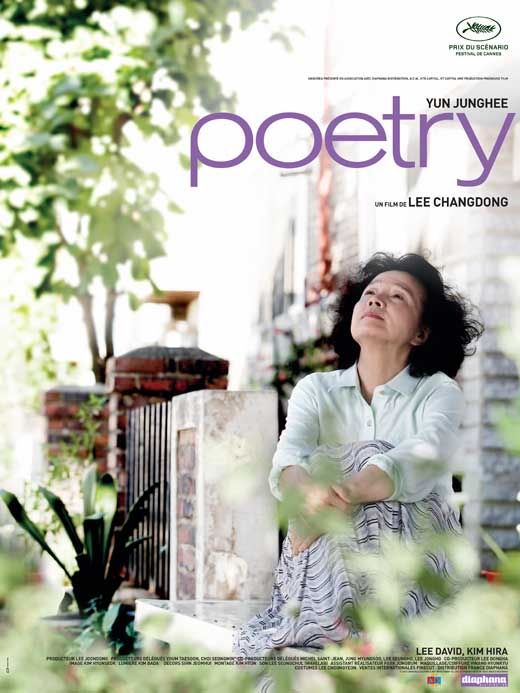(Words truly do have power - and linger long after the person who has spoken them has gone…)

CAST: Jeong-Hie Yun, Hira Kim, Nae-Sang Ahn, Da-wit Lee.
DIRECTOR: Chang Dong Lee
WARNING: Some SPOILERS and lovely poetics - literal and figurative - straight ahead…
Believe it or not, folks, we are hitting our 300th review today. Humbly speaking, that is a special milestone for us. Thanks to everyone who’s followed along on this crazy journey. Seems like it was only yesterday that we were setting sail, so to speak, with our very first review of ROBIN HOOD. As the Virginia Slims commercial famously used to say: you’ve come a long way, baby. As always, you are all in my heart and won’t be forgotten.
I can’t think of a more apt film to feature for this occasion than the exceedingly lovely South Korean film simply titled POETRY. Believe me when I write that there isn’t a more appropriate title for this film than that.
There are two reasons for this: our heroine is a 64-year old woman named Mija (Jeong-Hie Yun) who lives a dull existence in a South Korean town. She cleans houses for a living and lives off a pension, while caring for an ill-mannered and ungrateful teenaged grandson, Jongwook (Da-wit Lee), who prefers to play videogames and sulk - when he’s not being outright rude to his grandmother.
Mija’s life takes a turn for the more meaningful when she enrolls in a poetry-writing class. Her instructor tells her to listen to the rhythms of daily life, as well as look for the poetry that’s always there - whether plainly visible or, more often, hidden just below the surface. Despite this sage advice, Mija still struggles to write her first poem. It doesn’t help that she’s been very forgetful lately.
A visit to the doctor brings her some bad news: she’s been forgetful because the first symptoms of Alzheimer’s have started to manifest themselves in her. Even with this news, though, Mija soldiers on by caring for her grandson, cleaning houses, and still wrestling with the language of her first poem. Then, out of the blue, news of a girl’s suicide disrupts the quiet community. Mija gradually discovers that her grandson may or may not be connected to this incident.
But how? And how does this girl’s death affect Mija in the long run? Will she ever be able to complete a poem? And what role does Mija’s grandson have in the incident? Will Mija protect him? Or do the right thing? What will Mija’s poem ultimately be about? How will her gradual memory loss affect everything?
To find the answers, you have to see the movie. And, trust me, you want these answers.
BUT, EVEN MORE SERIOUSLY: As you folks can see, I’ve kept the plot breakdown for POETRY fairly short. There are two reasons for this: (1) the plot is elegant in its simplicity and doesn’t need extensive description; and (2) I want you folks to know the barest minimum of details going in. That’s how I first viewed it, and that’s the best way to experience this story.
As with the plot breakdown, I am keeping the analysis of the movie short - perhaps even shorter. All I’ll say is this: (1) Jeong-Hie Yun is terrific as Mija, and if it were possible for POETRY to be considered for an Academy Award, she would certainly get a Best Actress nomination; and (2) POETRY is a haunting, unforgettable meditation on memory, life, the things that we focus on to get through the rough patches, and the hard decisions we make in order to stay true to what we believe in.
And with that, I say again: “Go see this movie.”